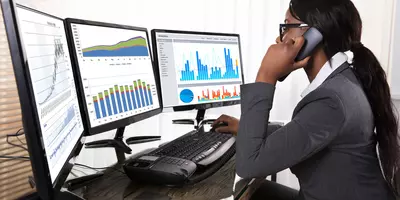
Dec 7, 2017 ● Kate Lopaze
How to plan successful events and meetings
Whether you’re an admin or an engineer, there are some skills that will come in handy no matter what. Being able to organize events and meetings effectively is one of those skills—good organizational skills and tools will help you in virtually any field. If you’re in an administrative role and need to take the lead on planning a meeting or event but don’t know where to start—we’ve got you covered! Let’s look at the basics you’ll need.
Pre-organize your meeting or event.
Before you get started, make sure you understand everything you’ll need to have in place. Take notes so you remember all the elements. (Nothing fancy—this is for your own reference.) For meetings, that means making sure you know…- What’s the topic?
- What’s the goal (desired outcome) of the meeting?
- Who needs to be there?
- Is it happening in your office, or somewhere else?
- Will people outside of your company be attending?
- Should you arrange for food or drinks to be available (like coffee, breakfast foods, sandwiches)?
- What kind of tech or tools will the attendees need (like access to presentation software, a projector screen, a white board, etc.)?
- Who should be attending?
- Do speakers’ schedules need to be coordinated?
- Is there a tentative schedule for the event, or will you need to figure out the timing?
- Does a location or facility need to be booked? If so, how many rooms are necessary?
- Will people be traveling to attend this event?
- Will attendees need to have any travel arrangements made?
- Is there a social component (lunch, dinner, drinks)?
- What are the catering needs?
- What kind of technology will presenters and attendees need?
- Does the event require programs, handouts, or anything else that needs to be designed or printed?
Choose an organizational tool for your event.
Ask yourself: how do you best stay organized? Do you function best when you have information physically in front of you? Or do you function best when you have all the information you need at your fingertips on your phone or tablet? The great thing is that you can go as technological as you want here—there are a number of helpful business event planning apps out there, like Sched or Planning Pod. Create specific folders on your computer, so you can store any documents, emails, and notes. If you prefer a more old-school method, try using a binder, which you can divide into relevant sections:- Vendor information
- Schedules
- Receipts and invoices
- Attendee information
Set a timeline for your event planning.
Before you move ahead with inviting people or booking a space for your meeting or event, sit down and plan a timeline.- When is the event taking place?
- What milestones will you need to hit before then?
- How much time will each of those steps take?


